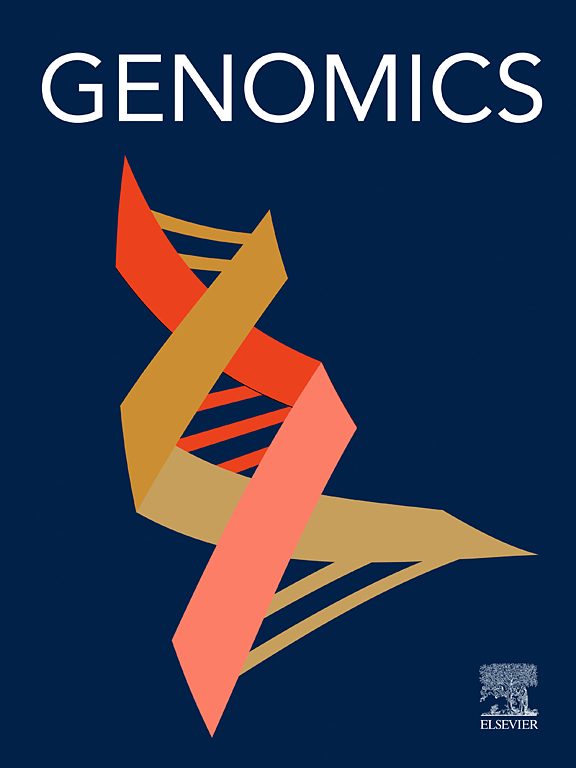Determining the effect of long non-coding RNA maternally expressed gene 3 (lncRNA MEG3) on the transcriptome profile in cervical cancer cell lines
IF 3.4
2区 生物学
Q2 BIOTECHNOLOGY & APPLIED MICROBIOLOGY
引用次数: 0
Abstract
This study investigates the role of the long non-coding RNA Maternally Expressed Gene3 (lncRNA MEG3) gene in cervical cancer, as evidenced by its downregulation in cancerous cell lines. The study demonstrates the effects of the overexpression of lncRNA MEG3 in cervical cancer cell lines, particularly in C33A and CaSki. Through comprehensive analyses, including Next-Generation Sequencing (NGS), alterations in global mRNA expression were analyzed. In C33A cells, 67 genes were upregulated, while 303 genes were downregulated. Similarly, in CaSki cells, 221 genes showed upregulation and 248 genes displayed downregulation. Gene ontology and KEGG pathway analyses were conducted to gain insight into potential mechanisms. Furthermore, the study delves into gene regulatory networks, uncovering intricate interactions among genes. The RNA sequencing data were confirmed for eight genes: PAX3, EGR2, ROR1, NRP1, OAS2, STRA6, CA9, and EDN2 by Real-time PCR. The findings illuminate the complex landscape of gene expression alterations and pathways impacted by the overexpression of lncRNA MEG3. The impact of MEG3 on the overall cervical cancer cells' mRNA profile is reported for the first time. New biomarkers for the prognosis of cervical cancer are also reported in this study. Moreover, identifying specific genes within the regulatory networks provides valuable insights into potential therapeutic targets for managing cervical cancer.
确定长非编码 RNA 母系表达基因 3(lncRNA MEG3)对宫颈癌细胞系转录组特征的影响
本研究调查了长非编码 RNA 母系表达基因 3(lncRNA MEG3)基因在宫颈癌中的作用,该基因在癌细胞系中的下调证明了这一点。该研究证明了 lncRNA MEG3 在宫颈癌细胞系中过表达的影响,尤其是在 C33A 和 CaSki 中。通过综合分析,包括下一代测序(NGS),分析了全球 mRNA 表达的变化。在 C33A 细胞中,67 个基因上调,303 个基因下调。同样,在 CaSki 细胞中,221 个基因上调,248 个基因下调。通过基因本体和 KEGG 通路分析,研究人员深入了解了潜在的机制。此外,该研究还深入研究了基因调控网络,揭示了基因之间错综复杂的相互作用。RNA测序数据确认了八个基因:Real-time PCR对PAX3、EGR2、ROR1、NRP1、OAS2、STRA6、CA9和EDN2八个基因的RNA测序数据进行了确认。研究结果阐明了受 lncRNA MEG3 过表达影响的基因表达改变和通路的复杂情况。该研究首次报道了MEG3对宫颈癌细胞整体mRNA谱的影响。该研究还报告了宫颈癌预后的新生物标志物。此外,识别调控网络中的特定基因为宫颈癌的潜在治疗目标提供了宝贵的见解。
本文章由计算机程序翻译,如有差异,请以英文原文为准。
求助全文
约1分钟内获得全文
求助全文
来源期刊

Genomics
生物-生物工程与应用微生物
CiteScore
9.60
自引率
2.30%
发文量
260
审稿时长
60 days
期刊介绍:
Genomics is a forum for describing the development of genome-scale technologies and their application to all areas of biological investigation.
As a journal that has evolved with the field that carries its name, Genomics focuses on the development and application of cutting-edge methods, addressing fundamental questions with potential interest to a wide audience. Our aim is to publish the highest quality research and to provide authors with rapid, fair and accurate review and publication of manuscripts falling within our scope.
 求助内容:
求助内容: 应助结果提醒方式:
应助结果提醒方式:


